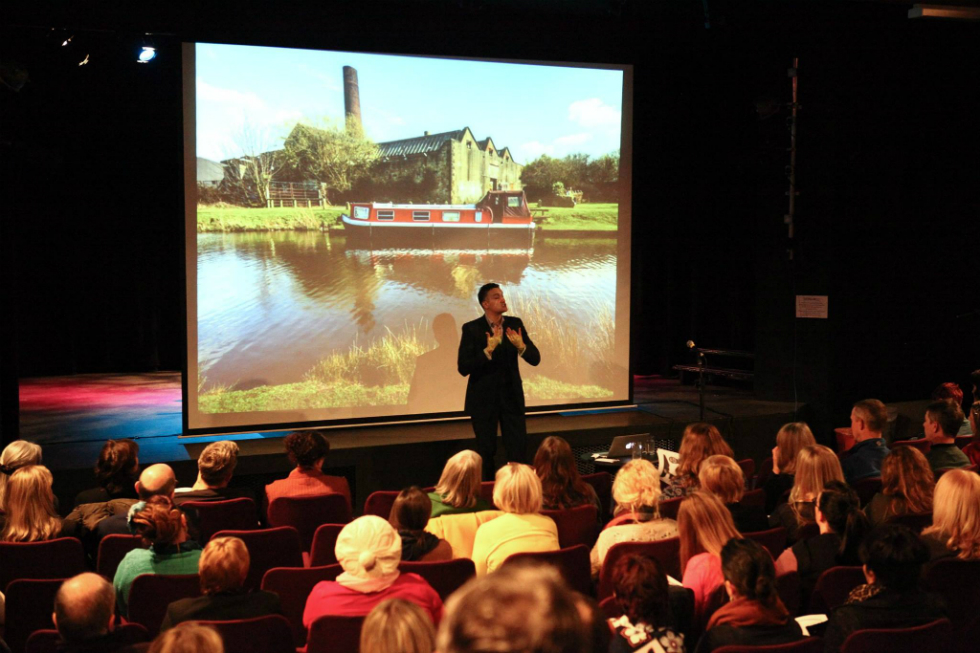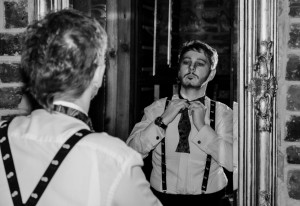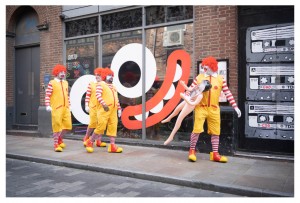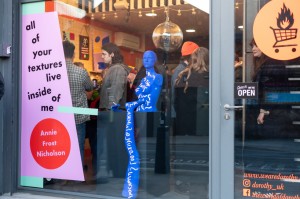Learning, The Super Slow Way

In celebration of the area’s new, Super Slow Way arts project, Slow Movement evangelist and journalist Carl Honoré recently visited Blackburn. Devon Forrester-Jones was there to learn more about the slow philosophy gaining international repute…
Slowness is a revolution sweeping the Western world. From Slow Food, to Slow Travel, and even Slow Cities, people have started to realise the value in taking a stroll through the rat race. To be slow is to enjoy the smaller moments in life; to take time to appreciate the world outside of deadlines and constant Facebook notifications.
Or, as Carl Honoré would put it: “Savouring the hours and minutes rather than just counting them. Doing everything as well as possible, instead of as fast as possible.” Honoré is a Slow Movement evangelist. He is a journalist, author and public speaker, whose work with The Economist, The Observer and Time magazine led to his involvement in Slow philosophy, and then to him publishing his first book, In Praise of Slow (2005); a best-seller that has been translated into 30 languages and which outlines the importance of taking life at a more leisurely pace.
Fittingly, Honoré was invited to talk at the Darwen Library Theatre, Blackburn, earlier last month by Super Slow Way: a new arts project taking place, slowly, along the Leeds-Liverpool canal. Entitled The Art of Slow – Carl Honoré Discusses Art & Education, The Slow Way, it was a great moment to absorb these ideas of slowness, and predominantly its importance in community arts, social integration and education. Our current school system, Honoré outlined, focuses on producing the perfect workers. Classrooms indoctrinate children to submit to the loudest authority. As capitalist culture runs away with itself, these children will be whisked away, unable to think for themselves and only able to focus on the endless emails which they will be barraged with once they enter the workforce.
Honoré explained the importance of artistic outlooks in education. He described moments of play and contemplation — when children become absorbed in study — as “butterfly moments”. This was illustrated through an anecdote where a young child finds herself transfixed by a single butterfly on a fence, building a whole fictional narrative for the butterfly; while her mother impatiently attempts to drag the child away due to her busy schedule which leaves no time for this contemplation.
Butterfly moments are raw material for artists, Honoré continued; artistic practices use rumination and open research to develop ideas. Artworks can be seen as doodles or sketches which arrest these ideas into something we can all enjoy.
Honoré outlined the three main aims of the Slow Education strand of the movement, which was introduced to the US in 2002 by Professor Maurice Holt, and then the UK by Joe Harrison-Greaves in 2011. The first principle of Slow Education is “deep learning”, which combines skill learning with moral teaching, to make sure children understand the consequences of their ability to perform skills. Secondly, autonomy: teaching children to follow their own interests and become active agents in their own education, rather than being spoon-fed irrelevant facts from a textbook. Finally, patience. Rather than hurtle through a syllabus, these methods allow the children to slow down and savour those butterfly moments; those moments of unadulterated play where they are able to allow spontaneous creative leaps to take place.
While these ideas sound wonderful in theory, it’s hard to imagine how they would work in practice, as no concrete examples were given during Honoré’s talk. Considering this afterwards, I began to think about UK art schools, which — thankfully — do run an ideal model for this type of learning. Thanks to open access to studios and facilities, art students are able to build their routine around a schedule that suits them. Night owls can access the space at night and early birds can get to work first thing in the morning. It was difficult, however, to picture how this might work in the strict 9 am to 3 pm hours that schools adhere to.
Ironically, Honoré gave his talk at an incredibly fast pace, not giving too much depth to each point given; for example, the way in which slow ideas can be implemented in the current, rather rigid educational system. Despite his quick delivery, Honoré gave the talk with a great deal of charisma, and peppered it with jokes, personal experiences and examples of where the Slow Movement has already taken effect. His role in the talk seemed to be as a poster boy for a slow way of life, laying the groundwork for us to discover this movement in more depth for ourselves. Honoré is a great public speaker, and one can see why he has given so many talks across the world (the Wall Street Journal describing him as ‘an in demand spokesman on slowness’). He is concise, clear, and captivating in his delivery, and makes his ideas accessible to everyone.
Where Honoré’s talk didn’t go into huge depth, about the implementation of Slowness in schools, local headteachers stepped in; hailing from the Blackburn area, they described (in the post-talk Q&A) their efforts to develop Slow Education in their own schools. Through projects with extended deadlines, the replacement of hour-long periods with free exploration throughout the day, and the encouragement of free play to allow children to learn skills through mistakes, Slow Schools are doing their best to shoehorn freer methods of education into an outmoded and restrictive school system.
Despite Slow methodology having shown vast improvements in the most problematic students, it seems there is very little government support for a slow way of life. While big businesses have adopted Slow methods to reduce stress, increase morale in their workforces, and (more cynically) sell their products — such as Häagen-Dazs (promoting the joy of waiting for their ice cream to soften), IBM (implementing a slow email movement) and even Volkswagen (launching the Beetle in Japan with the tagline ‘Go Slow’) — government policy has yet to adapt to a more holistic way of life. Slow Education battles on despite a lack of government support, and will probaly continue to do so into the future.
The Slow Movement hopes to affect widespread change from the bottom up, and instilling a widespread revolution of Slow Education may actually, effectively, slow us down. Make room for those butterfly moments in schools, workplaces and arts projects, like Super Slow Way, and we may even bring about a much calmer, more thoughtful and conscientious society.
Devon Forrester-Jones
Devon saw The Art of Slow – Carl Honoré Discusses Art & Education, The Slow Way, at Darwen Library Theatre, Blackburn, 3.30-5.30pm, 10 March 2016 — FREE
Read more about the Super Slow Way on The Double Negative
Look out for more Super Slow Way events on their website and Twitter: @superslowway





